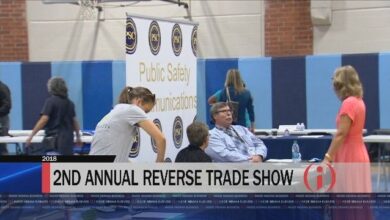Oi’ disabled! No Job? That’s your own fault

According to the Papworth Trust, by the age of 26, disabled people are four times more likely to be out of work or not in education than non-disabled people. At the end of last year, the Conservative government announced a renewed pledge to get 1 million disabled people into work within the next 10 years. But, as usual, it is disabled people themselves that are being treated as the problem. Graham McKean explores…
Despite government claims that it has managed to get more than 600,000 disabled people into work since 2013, I believe that the government has conveniently ignored the true cause of unemployment amongst disabled people – the lack of positive attitudes toward disabled people working, and lack of support to enable them to work. The Papworth Trust also found that one in five employers are less likely to employ a disabled person.
So, if you’re disabled, it is obviously your fault that you cannot get into work because you don’t have the right skills to gain and retain employment, right? Not that you’re being prejudiced against or that there are physical barriers to working. What a load of baloney!
This just stinks of a government that is too lazy to actually get out there and give employers the kick up the rear end that they all need to change their backward attitudes or make the changes needed to incorporate disabled people in the workplace.
The fact is, if disabled people cannot rely on the government for support to change attitudes, then what hope have we really got? Equality just isn’t there to start with, despite the ‘Disability Discrimination Act’ (DDA), introduced just over 20 years ago, and later updated and replaced with the ‘Equality Act’ (EA), in 2009. During that time I have not seen any significant improvement with regards to disability and employment.
I know all of this because, as a wheelchair user, I have experienced first-hand what it is like to find work – and it ain’t easy, believe me. Here, I will look at some of the difficulties I have faced over the years, which paints a picture of the problems many disabled people face on an all too regular basis.
Going to university if you’re disabled
In around 2010, whilst still working full-time, I studied archaeology at Leicester University. This involved taking part in fieldwork on several archaeological sites across the UK, from the west coast of Scotland to Bournemouth. In each case, I was fully supported and given the opportunity to demonstrate that I could do all the activities required of me to be an archaeologist.
From my experience, universities are more than ready to help disabled people to succeed on their courses. However, it is usually in their financial interest to take on a disabled person, assuming they can accommodate them, as they can get additional funding. Employers on the other hand, don’t seem to see the value in a having a disabled person as part of their workforce…
From disabled student to employment
When I completed my bachelor’s degree in archaeology with a 2:1 grade, despite my best efforts, I was unable to get a job in archaeology within the year or two that followed. I’d even done additional voluntary work in the field and gained the same experience as my non-disabled counterparts.
For the majority of employers, the reasons I was given was based on their preconceived notion that I couldn’t access sites, and that there were too many health and safety issues that surrounded it. Er, hello, which part of ‘I have a degree in archaeology that demonstrates I can do this’ do you not understand?
Don’t get me wrong, I can completely understand an employer’s concerns regarding safety etc. But all they have to do is work with me to come up with the right solutions, instead of assuming outright that it can’t be done.
Non-disclosure of your disability
In the end, I was applying for any work I could do based on my past work experience. But still, I was getting nowhere.
There came a point when I decided to stop disclosing upfront that I am disabled. I immediately noticed an uplift in the volume of interview requests I got. So, now that I had one wheel in the door, I was guaranteed a job at some point, right? Wrong.
Instead, I turned up for the interviews only to be faced with wildly inaccessible buildings. Often there were steps at the entrance and not even a basic temporary ramp, and quite often there was no disabled loo – both necessities. I even armed myself with the right Access to Work information to increase my chances.
My favourite excuse of all time for not having any access in place was; “it has never come up before now.” That’s alright then, I forgot disability was a new invention! Although I tried to remain upbeat, I felt defeated. Understandably, this negatively impacted my interview performance.
So, I tried another tact – telling the employer I was a wheelchair user after I was invited for an interview. Most of the time they would then tell me that their office was upstairs and there was no lift, or some similar story about lack of access. At least they were honest and upfront about it, but it meant that there was nothing I could do but try to find a workable solution, which rarely existed, or turn down the interview.
What I hated most though was going for a seemingly positive interview, talking about my access requirements, being told they would happily make all the necessary adjustments if I met their criteria, but, conveniently, never being the successful candidate.
Instead, I was fobbed off with the ‘lack of necessary experience’ answer, never really knowing whether that was truly the case. For me, this simply highlighted the fact that the only way for me to plan a career was to only look for employers that have a ramp and a disabled loo on their premises. That narrows the job market down considerably.
To be quite frank, it is disgraceful that, in this modern age, any wheelchair user should have to base their job search and career primarily on this criteria.
Infrastructure for disabled people is the key
Bearing in mind all of my experiences, it is not hard to see that the disabled individual is not generally at fault – the problem is clearly a lack of adequate provision within the workplace.
For me, this all highlights the need for the government, and those in charge of administering the DDA and EA, to actively change this. At the moment, it seems as though they’re doing nothing.
Without the proper means to enforce the DDA/EA legislation, they’re both worthless. And without those, disabled people can never truly be certain that they will be treated equally when it comes to recruitment. They just don’t stand a chance of gaining, rewarding and satisfying long-term careers.
Reluctance to employ the disabled
If you were to look at two applicants with similar skills and abilities, but one happens to be disabled and therefore unable to access the premises without changes, it’s obvious that the employer is going to go with the easiest option.
In this scenario, there is no way of knowing for sure whether the deciding factor was genuinely inexperience or due to disability-related factors. This has to change. The government must take serious steps to address this, instead of looking at disabled people and pointing the finger of blame at them.
If they do not start tackling this head-on with employers, it will only worsen. As a direct result, poverty among the disabled people will continue to rise as will their need to rely on support from the government in order to get by and to survive day to day.
I will leave you with this thought… according to NHS England (2016), the UK has 1.2 million wheelchair users, and estimates show that for every 182 wheelchair users not able to work, the benefits bill is likely to increase by up to £1m. However, the positive economic contribution made by disabled people in work could be up to £4.7m. So, enabling disabled people to work is a no-brainer!
By Graham S McKean
More on Disability Horizons…
We want to hear your thoughts on finding a job when you’re disabled. Leave your comments at the bottom of the article, message us on Facebook or tweet us @DHorizons.







